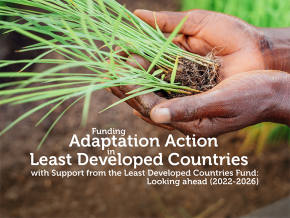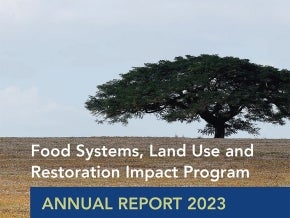
Paula Rueda Mora is a microbiology student from Costa Rica who will be part of her country’s delegation to COP28, with support from the Climate Reality Project America Latina and the Global Environment Facility. In an interview, she shared the importance of considering the health impacts of climate change and pollution, and offered a message to the leaders she will be joining in the Dubai negotiating rooms: “History is watching you.”
What is your area of focus?
I study microbiology at the University of Costa Rica. Although it may not seem very obvious, microbiology has a strong connection to climate change because microorganisms play a role in global warming and waste management. For example, when permafrost thaws, microbes within the organic material start to break the matter down, releasing carbon into the atmosphere.
When did you become interested in environmental issues?
I’ve been interested in environmental issues since I was a child. Of course I heard about it on the news all the time, but I also saw how it affected the lives of people in the northern regions of my country during the El Niño event in 2016. Thanks to the Climate Reality Project and Global Environment Facility, this year, I have the opportunity to connect my interests and concerns with the political sphere.
What message do you have for today’s political and business leaders?
History is watching you. I mean this in an encouraging way, not an antagonistic one.
This is your chance to make a change that will save millions, perhaps billions, of lives, protect livelihoods, and forge a better world for generations to come.
Don’t be discouraged by what we haven’t achieved, be bolstered by the fact that there is still a lot we can do. Focus on common interests and come up with creative solutions that create value for all. Every fraction of a degree of improvement counts.

Why is it important for young people to be in the COP28 negotiating rooms?
Being young automatically makes us more vulnerable to climate change. Simply by virtue of our age, we will see our lives more drastically changed than older people in a similar position to us. Our presence in Dubai is a reminder to every negotiator that the agreements they come to will have a significant impact beyond their lifetime.
What issue are you most focused on related to the climate negotiations?
One topic that interests me is how we can incorporate health into climate agreements and action in an integrated way. There are direct and significant impacts of pollution and climate change on health. We see traumatic injuries due to natural disasters, malnutrition due to worsening yields, and higher transmission rates of vector-transmitted diseases such as dengue. This is something that is currently happening in my country. Aedes Aegypti, the mosquito that transmits dengue, thrives in higher temperatures, and most of my family is now in an area with much higher dengue transmission rates. It is vital to develop health strategies and plans that incorporate climate change adaptation and, conversely, climate change policies that take health into account.
Do you have any hobbies?
In my free time, I like to crochet, paint, sculpt, illustrate, and play different instruments (piano, ukelele, alto recorder). I find that music and art are wonderful ways to express myself and push myself to learn new skills without feeling pressured.


